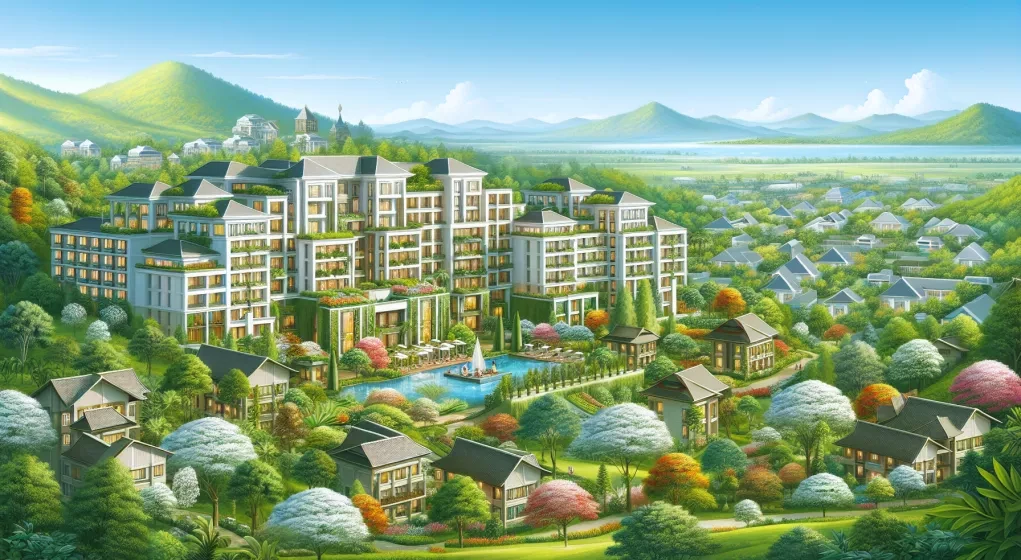In the dynamic and unforgiving arena of corporate finance, Wynn Resorts has maneuvered through the turbulence with an interesting turn in its credit saga. The bright lights of the Wynn and Encore Las Vegas, reminiscent of the eternal flame of ambition, have recently illuminated the fickle path of creditworthiness as these glittering monuments of entertainment were evaluated by the discerning eyes of Fitch Ratings. Bestowing upon the operator a credit grade of “BB-,” they painted a picture of “stable” horizons, a testament to cautious optimism amidst the sea of economic uncertainties.
A beacon in the casino operator’s armada is a compelling portfolio of steadfast, land-based casino assets, which stand like sentinels along the landscape of leisure and luxury. Receiving notable commendation is the spirited recovery unfurling in Macau, the crown jewel in Wynn’s realm, and the veritable strength anchoring the entertainment monolith in Las Vegas. Here, amidst the pulse of the Strip, the Wynn name adorns the entrance to its heralded establishments, echoing the brand’s tradition of upscale gaming and hospitality.
Yet, in this lustrous tableau, a shadow lingers—the average diversification of the company remains a curious juxtaposition to its otherwise illustrious presence in two of the world’s leading gaming markets. The financial juggernaut’s odyssey of expansion and rejuvenation requires a steady stream of capital to fund a constellation of current and prospective ventures. This commitment, albeit necessary for growth and innovation, holds the potential to decelerate the strides towards even more remarkable credit triumphs.
Wynn Resorts’ “stable” outlook mirrors Fitch’s prognostication of a resilient Macau rebounding with fortitude from the pandemic’s stifling grip. It foresees prosperity for the Las Vegas venues and recognizes a sturdiness in the company’s financial reservoirs. The narrative unfolding in Macau is an integral chapter in Wynn’s success, driving an impressive share of its EBITDA and revenue. Here, Wynn’s dependency on China’s economic currents becomes a double-edged sword, as geopolitical dramas cast long shadows over an otherwise bright gala of casino activity, which, according to robust indicators, is on the ascent.
Wynn’s fortresses in the Special Administrative Region, specifically Wynn Macau and Wynn Palace, have skillfully adapted to these shifting sands, now courting the premium mass bettor crowd—a gambit away from the bygone VIP-centric strategy. Thanks to a return in visitation and hospitality services, there’s an inkling of bounce-back to pre-pandemic gratifications.
For Wynn, the prospect of trading its “BB-” badge for one of investment-grade respectability could be an odyssey in itself, yet the operator is anchored by promising signs of increasing financial fluidity, a robust cash reserve, and strategic divestments from underperforming arenas. On home soil, Wynn’s Las Vegas legacy continues to shine, bolstered further by the prospects of Encore Boston Harbor, which, through an infusion of innovation and amenities expected by 2026, vies for the title of a preeminent regional casino.
Investors, meanwhile, observe with keen interest as Wynn diversifies its homage to its benefactors, skewing its quintessence towards dividends over stock buy-backs, navigating the complex dance of shareholder appeasement.
In totality, Wynn Resorts sails forward, its journey marked by resilience and pioneering, a tale of financial acumen under the bright constellations of leisure and prosperity.






